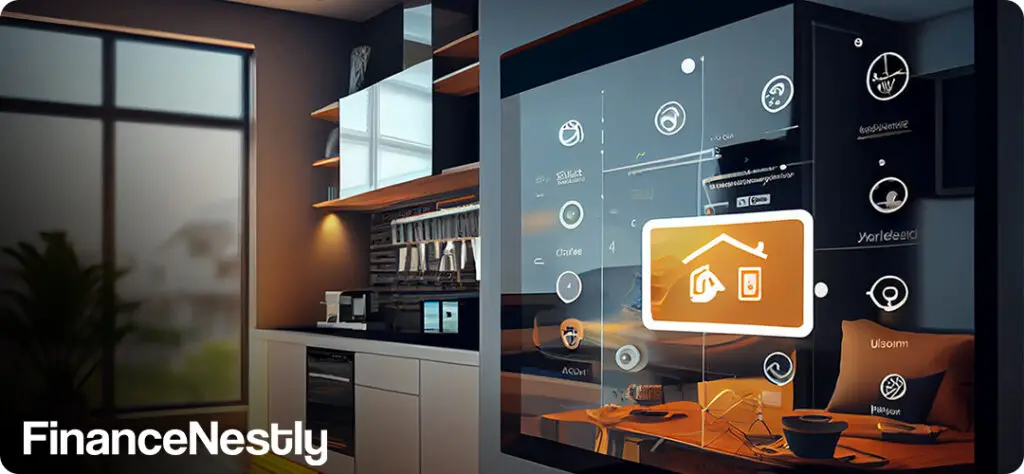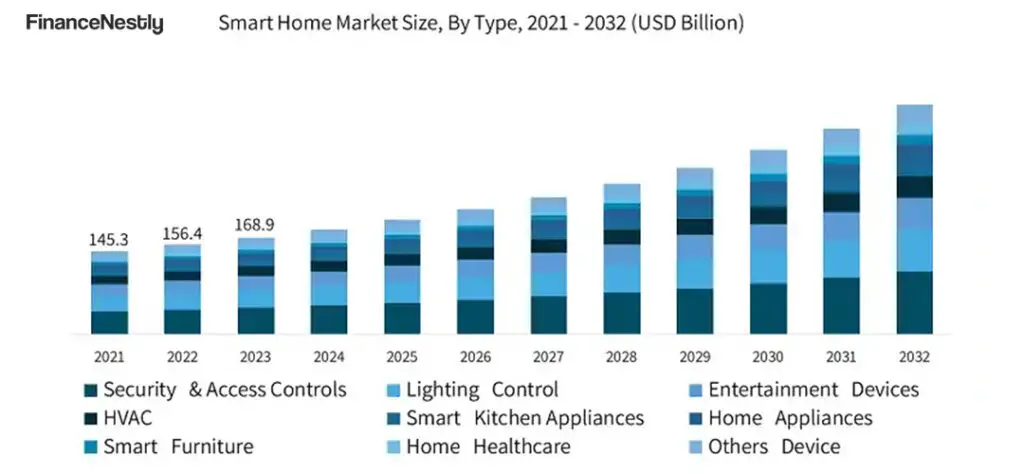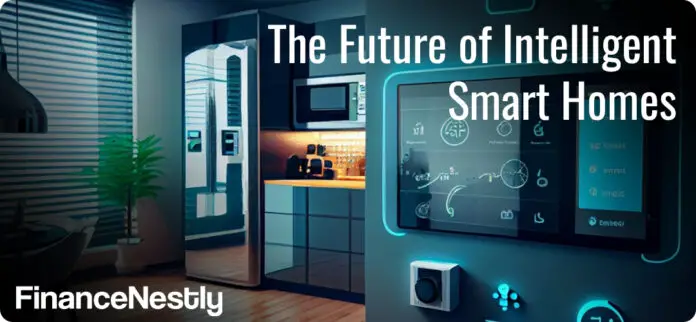The real estate market is undergoing a seismic shift with the rapid integration of smart home technology. Once a futuristic dream, smart homes are now shaping the way properties are built, sold, and experienced. From energy efficiency to enhanced security and convenience, these trends are driving a transformative era in real estate.
1. What Defines a Smart Home?
Smart homes are residences equipped with devices that enable remote control and automation of various functions like lighting, heating, security, and more. These features are interconnected through the Internet of Things (IoT), creating a seamless living experience.
- Convenience at Your Fingertips: Imagine adjusting your thermostat or turning off lights via a mobile app.
- Energy Efficiency: Smart systems optimize energy usage, reducing utility bills and environmental impact.
- Enhanced Security: From video doorbells to motion detectors, smart homes are more secure than ever before.

2. Growing Demand for Smart Homes
As technology becomes more accessible, the demand for smart homes has skyrocketed.
- Homebuyer Preferences: Surveys reveal that buyers are willing to pay more for homes with smart features.
- Generational Trends: Millennials and Gen Z, who value technology, are driving this trend in real estate.
- Pandemic Effect: Remote work and increased time at home have accelerated interest in properties with smart technology.
This rising demand is prompting real estate developers to integrate smart features into new builds and renovations, setting the stage for a more tech-driven market.
3. Real Estate Trends Influenced by Smart Technology
The adoption of smart home technology is reshaping real estate in profound ways:
- Integration in Luxury Properties: High-end homes now come equipped with fully integrated smart systems, from automated lighting to AI-powered assistants.
- Green Buildings: Smart energy management is becoming a key selling point for eco-conscious buyers.
- Smarter Urban Living: Cities are embracing smart apartments that cater to tech-savvy residents.
These trends indicate that the real estate sector is not just keeping up with smart technology but leveraging it to meet evolving consumer expectations.
4. Challenges and Opportunities in the Smart Home Market
While the rise of smart homes presents exciting opportunities, it also comes with challenges:
- Affordability: Advanced smart systems can be expensive, limiting accessibility for some buyers.
- Privacy Concerns: The collection of personal data by smart devices raises important questions about security.
- Opportunities for Innovation: As technology advances, there’s immense potential for affordable and secure smart solutions.

5. The Future Outlook for Smart Homes in Real Estate
The integration of smart technology into real estate is expected to grow exponentially in the coming years.
- AI and Machine Learning: Homes will not only be smart but intuitive, predicting and adapting to user preferences.
- Blockchain for Real Estate: Blockchain technology may further enhance smart home transactions by ensuring transparency and efficiency.
- Expanding Accessibility: As costs decrease, smart homes will become the standard rather than a luxury.
For both homeowners and real estate professionals, understanding and embracing these trends will be crucial to staying ahead in an increasingly competitive market.
Conclusion
The future of smart homes is not just a technological trend but a cornerstone shaping the modern real estate market. From greater convenience and energy efficiency to enhanced security, smart homes represent the intersection of innovation and practicality. As these technologies continue to evolve, they will redefine how we live and invest in property.

